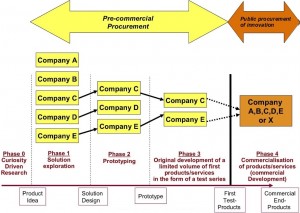 Origin Green is Ireland’s food and drink sustainability programme with a vision that Irish food and drink becomes the first choice globally because it is sustainably produced by people who care. It helps Ireland produce more food from less resources and makes great business sense.
Origin Green is Ireland’s food and drink sustainability programme with a vision that Irish food and drink becomes the first choice globally because it is sustainably produced by people who care. It helps Ireland produce more food from less resources and makes great business sense.
With climbing energy costs, increased carbon regulation and social responsibility, plus frequent price hikes in global commodities, the demand for sustainable food and beverage producers worldwide has never been higher. International trade customers are actively seeking to align with a sustainable food and beverage supply chain, and Origin Green supports that common goal of sustainable food production.
Are you interested in applying for Origin Green membership?
Have you time to write the 50-60 page application?
Have you the resources to create a 10,000 word proposal?
Do you want professional writing assistance to ‘get this over the line’?
If so, Arvo can help. We are expert Tender writers and have supported local food businesses with their Origin Green applications. Writing great proposals is a critical skill for all food businesses to document your current ways of working and gain support for your future plans. Your ideas or suggestions are more likely to be approved if you can communicate them in a clear, concise, engaging manner. Knowing how to write a persuasive, captivating proposal is essential for success within Origin Green, so contact Arvo today to discuss your Origin Green plans or get started with the Origin Green form online here.
It is important to note that Origin Green works in a different way for farmers and food businesses. For farmers, participation in Bord Bia’s Sustainable Assurance Schemes ensures membership of the programme. Quality Assurance plays a fundamental role in promoting food and horticulture and provides the platform for consumer promotion of product quality. Bord Bia operates a series of quality assurance schemes for the food industry. The schemes are built on best practice in farming and processing, current legislation, relevant industry guidelines and international standards – and are accredited to the ISO17065/2012, outlined as follows;
- Sustainable Beef and Lamb Assurance Scheme (SBLAS)
- Meat Processor Quality Assurance Scheme (MPQAS)
- Feed Quality Assurance Scheme (FQAS)
- Sustainable Horticulture Assurance Scheme (SHAS)
- Pigmeat Quality Assurance Scheme (PQAS)
- Poultry Products Quality Assurance Scheme (PPQAS)
- Sustainable Dairy Assurance Scheme (SDAS)
- Sustainable Egg Assurance Scheme (SEAS)
Similarly, please contact Arvo to discuss how we can help your Quality Assurance Scheme application.



